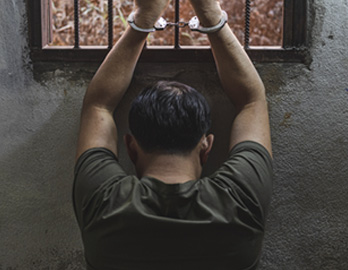Baker Act

In This Article
Baker Act
The Baker Act is the process or “the law” that governs the involuntary assessment and involuntary placement of an individual who is suffering from mental illness and is an imminent threat to themselves or another or to neglect themselves.
While the Baker Act was enacted in order to help individuals in their time of need and prevent the tragic loss of life or harm to others it has evolved into a very complicated system that is hard for individuals to understand and is open for misuse.
While there is no requirement that a person hire a lawyer while being held voluntarily or involuntarily a lawyer with knowledge of the law and the manner in which many facilities operate can reduce the time that an individual is held against his or her will. In addition, a lawyer who is familiar with the rights afforded a patient being held under the Baker Act can ensure that those rights are honored. Paul Figueroa Law understands that individuals being held under the Baker Act will need assistance outside the hours of 8:00 am to 5:00 pm and and are often asked to make decisions in a matter of hours of minutes. If you or a loved one is being held under the Baker Act call our office to schedule a free consultation.
Petition For Involuntary Examination
Under Section 394.463(1), Florida Statues, an individual may be taken to a receiving facility if there is reason to believe the person suffers from mental illness AND the individual has refused a voluntary examination OR, the individual is unable to determine for himself or herself whether an involuntary examination is necessary, AND the person is likely to suffer from self-neglect or inflict substantial harm to themselves or another.
Section 394.463(2)(a), Florida Statues, lists who may file a Petition for Involuntary Examination or “Baker Act” an individual. While a circuit or county court may enter an ex-parte order finding that an individual meets the statutory criteria for an involuntary examination, typically the Baker Act is initiated by a doctor, law enforcement officer, LCSW, that feels that the individual is a threat to themselves, or another based on mental illness. This process may be called a BA 52. The BA 52 is the form that is filled out in order to initiate an examination. Far too often, an individual or their family member will reach out for help based on mental illness and it will result in the initiation of a Baker Act or BA 52 against the individual that help is sought for.
The involuntary examination period may last up to seventy-two (72) hours during which time an individual is examined by qualified professional defined under the statute to determine if they meet the criteria to be held under the Baker Act. If the patient is a minor, the examination must be initiated within twelve (12) hours of the patient arriving to the facility. These time periods are governed or outlined in Section 394.463(2)(g), Florida Statutes.
At the end of the seventy-two (72) hours or earlier, one of the following actions must be taken; the patient shall be released, shall be given the opportunity for voluntary outpatient treatment, be offered the opportunity to give informed consent to stay inpatient voluntarily, or a petition, called a BA 32, can be filed in order to keep the person for involuntary placement.
Petition For Involuntary Inpatient Placement
Once a petition for involuntary placement or BA 32 is filed the facility must file that petition with the court and a court hearing shall be set and the case heard within five court working days from the filing of the petition. In that court hearing a magistrate or Circuit Court judge will hear evidence and determine whether the individual meets the criteria to be held for involuntary placement in a locked inpatient facility.
At that hearing the individual shall be appointed counsel or has the right to hire private counsel of their choosing who can represent them and defend their rights. The facility and the state attorney’s office will present evidence to the court to see if the individual meets the criteria to be held involuntarily and in an inpatient setting.
Please see Section 394.467(6), Florida Statutes, or give Paul Figueroa Law a call if you have additional questions about the hearing on the involuntary placement petition process.
Voluntary Admissions Section 394.4652, Florida Statutes
A facility may receive an individual for observation and treatment if the person is over the age of eighteen who has made an application for or after providing informed consent for treatment. There are additional criteria that need to be met if the person is under the age of eighteen to be admitted to a facility under voluntary status.
Once a patient is admitted under a voluntary status, Section 394.4652(2)(a), Florida Statutes, states that the facility shall discharge the patient if or when the facility determines that the patient has “sufficiently improved so that retention in the facility is no longer desirable.” It is not necessarily up to the patient to determine when the patient is free to leave the facility.
If a patient requests to leave the facility or revokes their consent, then the patient must be discharged within twenty-four (24) hours. In some cases, it may be longer if the facility requires more time to provide a discharge plan to the patient. However, the extended time cannot be longer than three (3) days (which does not include weekends or holidays). The request to leave the facility must be entered into the clinical record. Although others may request the patients discharge the patient still may be required to make the request themselves.
Voluntary V. Involuntary
An issue that arises with many Baker Acts is the facility gives the impression and puts pressure on an individual to sign “voluntary”. The facility may tell the person that they will get out sooner if they sign voluntary and under the guise of you can leave whenever you want. However, voluntary admission does not mean that an individual can leave when they want. What voluntary admission means is that they are there voluntarily, and they’ve given the facility expressed informed consent to stay there and receive treatment voluntarily. It means they can state their wish to leave, and the facility has twenty-four (24) hours to have them assessed by one of their doctors to determine if they meet criteria or if they can be released. At the end of the twenty-four (24) hour period the individual will remain in the care of the facility if that physician or psychiatrist determines that they meet criteria for continued involuntary placement and then they have two (2) working days in order to file a BA 52 petition against that individual. The individual would then be there for up to five (5) business days until they are brought before a magistrate or before a Circuit Court judge.
Many patients will be offered the opportunity to sign voluntary and think they will be released sooner. That is very seldom the case. All the voluntary status tends to do is relieve the facility of the time frames that they have in order to bring the individual being held inpatient and against their will in front of a judge. Voluntary status allows for the billing of the patient’s medical insurance or other resources, and they are responsible for that bill.
Rights of Patients And Habeas Corpus
The Constitution of the United States and Constitution of the State of Florida afford certain protections to citizens and individuals within its boundaries. In addition to those rights, individuals held under the Baker Act have rights given to them under Section 394.459, Florida Statutes. These rights provide that a person held under the Baker Act who is not charged with a criminal offense may not be treated as such. They also provide for the right to treatment, the quality of treatment, the right to express and informed consent, the quality of treatment, communication, abuse reporting, visits, the care and custody of personal effects of the patients, voting in public elections and habeas corpus.
If an individual feels that these rights are being violated then the individual, a relative, friend, guardian, guardian advocate, representative or attorney may file a writ of habeas corpus. The writ of habeas corpus under Section 394.459(8), Florida Statues, allows the aforementioned individuals to challenge the legality of the patient’s detention or if the person feels that the patient is being unjustly denied denied a right or privilege is being denied or or that a procedure is being abused.
The Baker Act process was created with good intentions but has become open for misuses and has been abused by several facilities throughout state of Florida. It is a difficult process to understand, and many family members are not properly or adequately informed by these facilities of what is happening with their loved one who is being held against their will and who is not being protected. While there is a patients’ Bill of Rights, many facilities will not listen to or communicate with family members, and it necessitates the hiring of an attorney to assist in navigating the process and hold the facilities responsible in following the law.
These cases develop and can devolve quickly. If your loved one is being held under a Baker Act you should act quickly and hire an attorney that understands the law.
Definitions
BA 52 –This is the name of the form or petition that initiates an ex-parte involuntary examination in which a facility may hold a patient up to seventy-two (72) hours for the examination and evaluation.
BA 32 –This is the name of the form or petition for involuntary inpatient placement.
Involuntary Status –this is the patient’s status who has refused to consent for further inpatient treatment and must be brought to court under a petition for involuntary inpatient placement if the facility determines that the patient meets criteria or released if they no longer meet criteria.
Voluntary –this is the patient’s status who has agreed to inpatient treatment and has relieved the facility of their time frames to bring the individual before the court for a determination to be reached by the court as to whether they meet criteria for continued detention.
Court Working Days –days in which the courts are open.
Business Days –traditionally Monday through Friday unless there is an observed Federal Holiday.
If you are currently facing a legal situation or have questions about your legal rights, don’t wait until it’s too late. Call (813) 213-0000 now or fill out our CONTACT form to speak with an experienced attorney who can guide you through the legal process and get you the help you need to protect your future.










